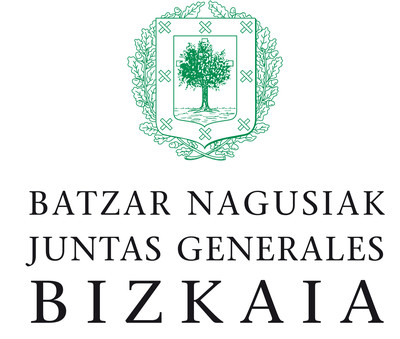PRESENTATION
The 29th of November marks the centenary of the death of Giacomo Puccini, a true musical genius, a unique and unclassifiable personality and a theatrical master whose operas are amongst the essential masterpieces in the history of opera, and his characters and heroines amongst the most famous and popular. To commemorate this anniversary, ABAO schedules Il Trittico in full for the first time in its history. Sponsored by BBVA Foundation
With death as the main thread, Il Trittico is a trilogy of three short operas: Il Tabarro, Suor Angelica and Gianni Schicchi. Inspired by Dante Alighieri’s Divine Comedy, Puccini wanted Il Tabarro, tragic and veristic, to represent hell; Suor Angelica, melancholic and lyrical, purgatory; and Gianni Schicchi, heaven, in the form of a comedy.
Vocally speaking, the three works are quite demanding for the singers who participate in them and this operatic triad features soloists such as Carlos Álvarez, Ángeles Blancas, Marco Berti, Chiara Isotton, Karita Mattila, Ioan Hotea, Stefano Palatchi, Ana Ibarra, Anna Gomá, Sofía Esparza and Itziar de Unda, amongst the 29 performers who participate in this true artistic “tour de force”.
Pedro Halffter, conducting the Nafarroako Orkestra Sinfonikoa, will be in charge of directing the intense and incredible orchestral language and the immense expressive palette, full of colours and textures, of three scores with a fast pace and enormous dramatic contrasts.
On stage, a great production by ABAO Bilbao Opera, signed by Paco Azorín, who presents the three operas in a creative manner, recreating three individual paintings with an impressive set design on the move, where lighting and projections play a relevant role, inspired by the Italian neorealism.

ARTISTIC SHEET
MULTIMEDIA
SYNOPSIS
IL TABARRO
Michele sits at the helm of his barge to smoke his pipe and admire the sunset while the stevedores empty the hold. Giorgetta, Michele’s young wife, offers everyone something to drink: the day is coming to an end and Michele goes down into the hold. On the deck, the stevedores call an organ grinder who is passing by and Giorgetta starts dancing, first with Tinca and then with Luigi, her lover. Michele reappears, the dancing is interrupted and everyone goes back to work. There is then a tense dialogue between husband and wife and Michele tells Giorgetta that some workers, including Luigi, will stay ashore when the barge departs again. In the background, a song peddler hawks his wares to a group of seamstresses by singing one of his melodies.
La Frugola, Talpa’s wife, enters with an old sack on her shoulders full of all kinds of clothes that she has been scavenging; she shows them to Giorgetta and, at the same time, entertains her with nonsense about her life and her cat. The stevedores have finished their work and are about to leave. La Frugola criticises Tinca for his drinking, and he replies that alcohol serves to drown rebellious thoughts; Luigi agrees. La Frugola dreams of a little house in the country where she would like to retire and live in peace, whereas Giorgetta and Luigi, on the contrary, praise the city, where life is not as miserable as on the river. La Frugola and Talpa leave.
Luigi, tired of his life of misery and unable to stand the torture of their secret love affair, asks Michele to let him go ashore in Rouen. Michele dissuades him and goes into the hold. The two lovers are now alone and arrange a date for that night: as usual, Giorgetta will light a match to tell Luigi it is the right time to come onto the ship. He leaves.
Michele comes up from the hold and reminds his wife of the happy times in their marriage, before their son’s death, when he used to wrap her in his cloak. Giorgetta says that she is tired and enters the cabin. Michele, who is now alone, expresses all his sadness and his desire to find out which of the stevedores is Giorgetta’s lover. He lights his pipe with a match and Luigi, from the shore, believing this to be the signal agreed upon with his lover, runs to the barge. Michele grabs him, forces him to confess and strangles him, hiding the body underneath his cloak. Giorgetta, alarmed by the noise, goes up on deck, but calms down when she sees that her husband is alone. To lull Michele’s suspicions, she asks him to wrap her in the cloak, like in the old days; Michele agrees, opens the cloak and forces her face down onto her dead lover’s face.
SUOR ANGELICA
A cloistered monastery in the late 17th century. It is a spring afternoon and the nuns are in the church. Two lay sisters arrive late, followed by Sister Angelica, who does her penance by kissing the ground before walking through the door. Once the service is over, the nuns leave and, before recreation time, the Monitor calls some sinful sisters to penance. Suddenly, their attention turns to the water in the fountain, which, struck by the last rays of sun, seems to be golden. After remembering how much the recently deceased Sister Bianca Rosa liked this effect, they decide to fill a bucket and take it to her grave. The dead, Angelica points out, have no desires and this makes death a beautiful life. Profane desires are forbidden and the sisters confess their simple forbidden dreams. Angelica denies her having any, but the others whisper that this is not true, as she was left in a convent by her noble family and has always longed to hear from them.
They are interrupted by the Nursing Sister, who asks Angelica for help, as an expert in the use of herbal remedies, to treat a sister who has been stung by wasps. Other sisters arrive with supplies. One of them, intrigued, asks about the visitor in the magnificent carriage at the door. The others reply that no one has appeared yet, but Angelica guesses that the visit is for her. Shortly afterwards, the Abbess announces the arrival of her Aunt, the Princess. From the early death of Angelica’s parents, she has been in charge of the family’s assets and the children’s education. She has now come to the convent to obtain her niece’s consent for the division of property that is going to be carried out on the occasion of Angelica’s younger sister’s wedding.
When she asks the name of the groom, her aunt coldly replies that it is a man who has forgiven the shame that she had brought onto her family. Distressed by this reply, Angelica asks her to tell her about the innocent cause of her disgrace: her illegitimate child whose birth, seven years before, condemned her to an existence of endless atonement. The Princess coldly informs her that the child died two years before. Angelica, grief-stricken, falls to the ground sobbing and, when she calms down, drags herself to the table and signs the document that her aunt shows her.
Once alone, Angelica thinks of her dead son, who never got to know her. She talks to him and asks him to intercede with the Virgin so that she allows her to join him. At a moment of grace, she seems to be lit by a mystical and joyful vision. Night falls and Angelica, like the rest of the nuns, retires to her cell. Some minutes later she returns to the cloister, picks some poisonous herbs from the garden, prepares an infusion with them and drinks it. When she suddenly gets her clarity back, she realises that she will be damned for having taken her own life. She then desperately begs forgiveness for having lost her reason at a time of extreme grief. Finally, a miracle takes place. The Virgin appears, solemn and luminous, and sweetly pushes her son towards the dying nun.
GIANNI SCHICCHI
On a large canopy bed, with four lit candelabra on each side, lies Buoso Donati, recently deceased. His relatives’ wailing does not last long, interrupted by the well-founded suspicion that Buoso has forgotten his own relatives in his will. In fact, it is rumoured that he has left all his estate to the monks. Worried, the relatives ask for the enlightened opinion of Simone, who was once judge of Fucecchio. He replies that if the will has been delivered to a notary, the problem is now irreparable; if, on the contrary, the document is still in the house, things could take a really different course. Rinuccio thinks of his fiancée, who he is looking forward to marrying on the 1st of May.
Suddenly, Rinuccio joyfully shouts that he has found the famous roll of parchment and, taking advantage of the family’s fuss, he asks for consent for his wedding. They all read anxiously, holding their breath. But the hope of inheriting soon turns into bitter disappointment, since Buoso has left all his estate to the monastery. Rinuccio advises the relatives to get the help of Lauretta’s father and his father-in-law to be, Gianni Schicchi, an astute and extremely sagacious person. While the relatives are arguing, Gherardino rushes in and announces the arrival of Gianni Schicchi, who has been called by Rinuccio.
Gianni Schicchi enters with his daughter Lauretta and ironically asks if Buoso has improved, given his relatives’ expressions of sorrow. When he finds out that he has died, he mocks all of them and quickly adds: “You lose Buoso, but there is the inheritance!” The relatives’ rage breaks out uncontrollably, with a single cry of bitterness: “Disinherited! Yes, yes, disinherited!” An argument about Rinuccio and Lauretta’s wedding breaks out again, as she has no dowry. The girl pleads with his father, who finally comes up with an idea: they must pretend that Buoso is still alive. The bed is quickly made and the deceased’s body is moved to another room so that Gianni Schicchi can take his place. Just then, Maestro Spinelloccio knocks on the door. The doctor has come to ask about Buoso’s condition: he is feeling better, the relatives lie in unison. And Gianni Schicchi, imitating Buoso’s voice, begs the doctor to let him rest and asks him to come back at night.
The happy ending of the scheme is then revealed: the notary must be called immediately, because Buoso is worse and wants to make his will immediately. As the room is dark, the notary will not realise that it is not him, Gianni Schicchi claims. Thrilled at this idea, the relatives acclaim Gianni Schicchi, and Rinuccio, inflamed with the hope of finally marrying his Lauretta, runs to get the notary. They all embrace and kiss each other enthusiastically.
Rinuccio returns and announces the arrival of the notary with two witnesses. Hidden by the drapes of the bed, Gianni Schicchi excuses himself by saying that he would have liked to write the will in his own hand, but, unfortunately, his paralysis prevents him from doing so. He then dictates his last will: a simple funeral with no ornament. A modest donation to the monks of Santa Reparata. Such lucidity, when he is about to die, arouses everyone’s admiration. And Gianni Schicchi continues undaunted with the clauses of the will, allocating each of the relatives a part of the inheritance. Nevertheless, the most coveted assets are still to be distributed: the house, the mule and the mills at Signa. And, at this point, Gianni Schicchi, mocking the incredulous relatives, shamelessly allocates himself all these properties. The relatives’ anger soon breaks out, but Gianni Schicchi silences them by referring to the penalty that corresponds to thieves: “Farewell, Florence, farewell, heavenly skies...” Finally, he orders Zita to give one hundred florins from his own purse to the notary and twenty to the witnesses, who bless him, deeply moved.
When left alone with Gianni Schicchi, the enraged relatives attack him, but he takes Buoso’s stick from the bed’s headboard and hits them nonstop. The relatives, in their flight, try to loot as much as they can and leave the house. When the fuss has ended, Rinuccio and Lauretta appear on the sunbathed terrace. The two young lovers embrace tenderly, recalling their first kiss, when Florence seemed to them like paradise. Gianni Schicchi returns and, when he sees Lauretta and Rinuccio embracing and happy, on a new spring day, he smiles, moved, and exclaims: “Tell me, ladies and gentlemen, if Buoso’s money could have had a better end than this”. And, with cunning acquiescence, he adds: “For this trick, they sent me to hell... and so be it”, but trusts that the audience, “with permission of the great father Dante”, allow him extenuating circumstances.



























































